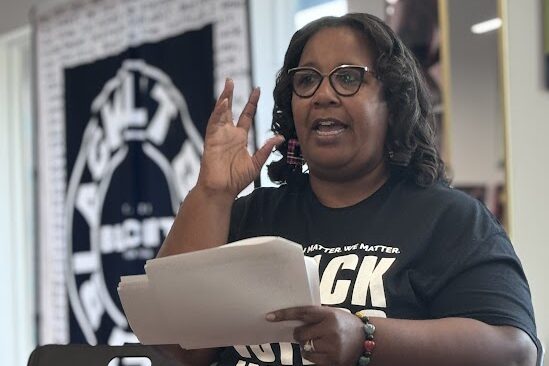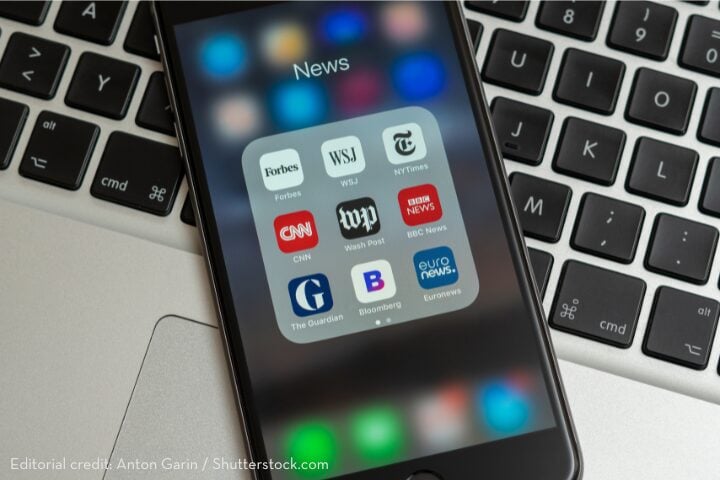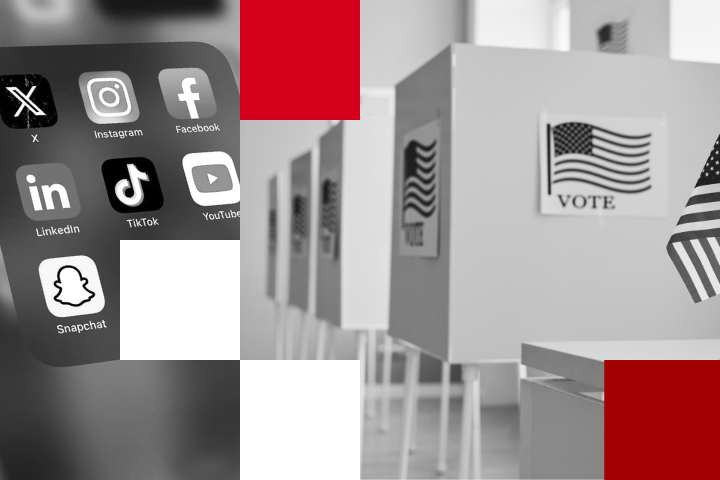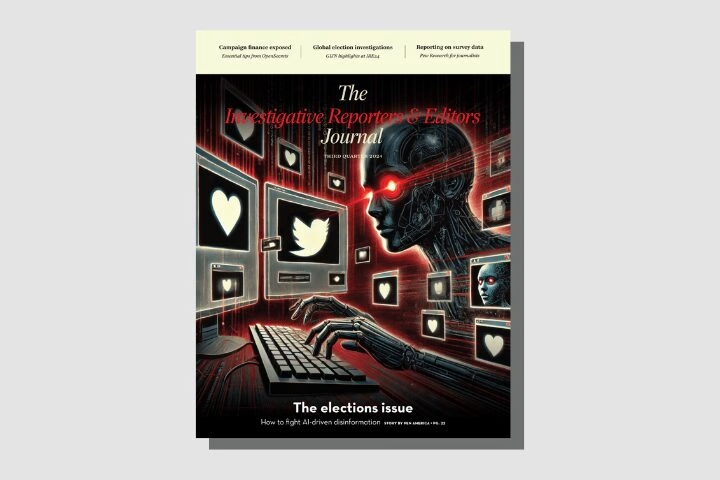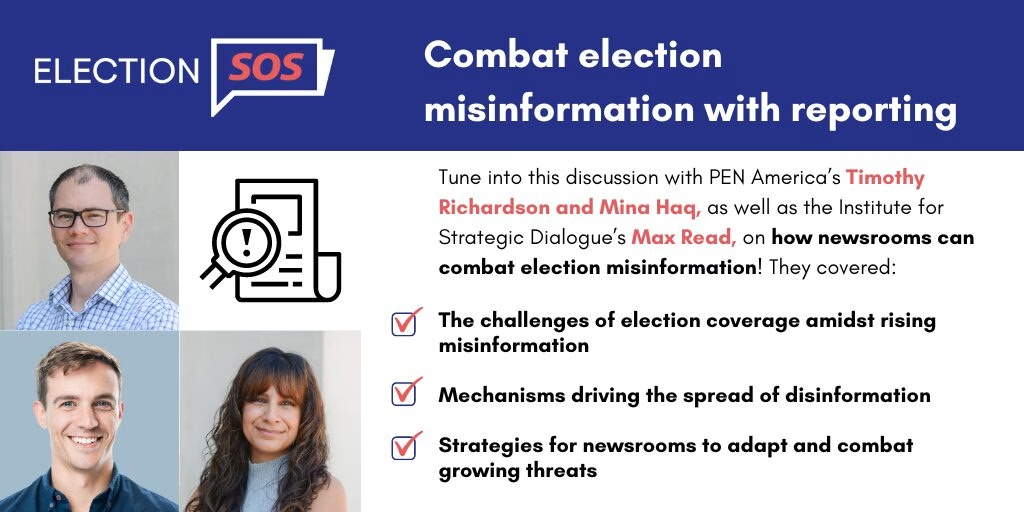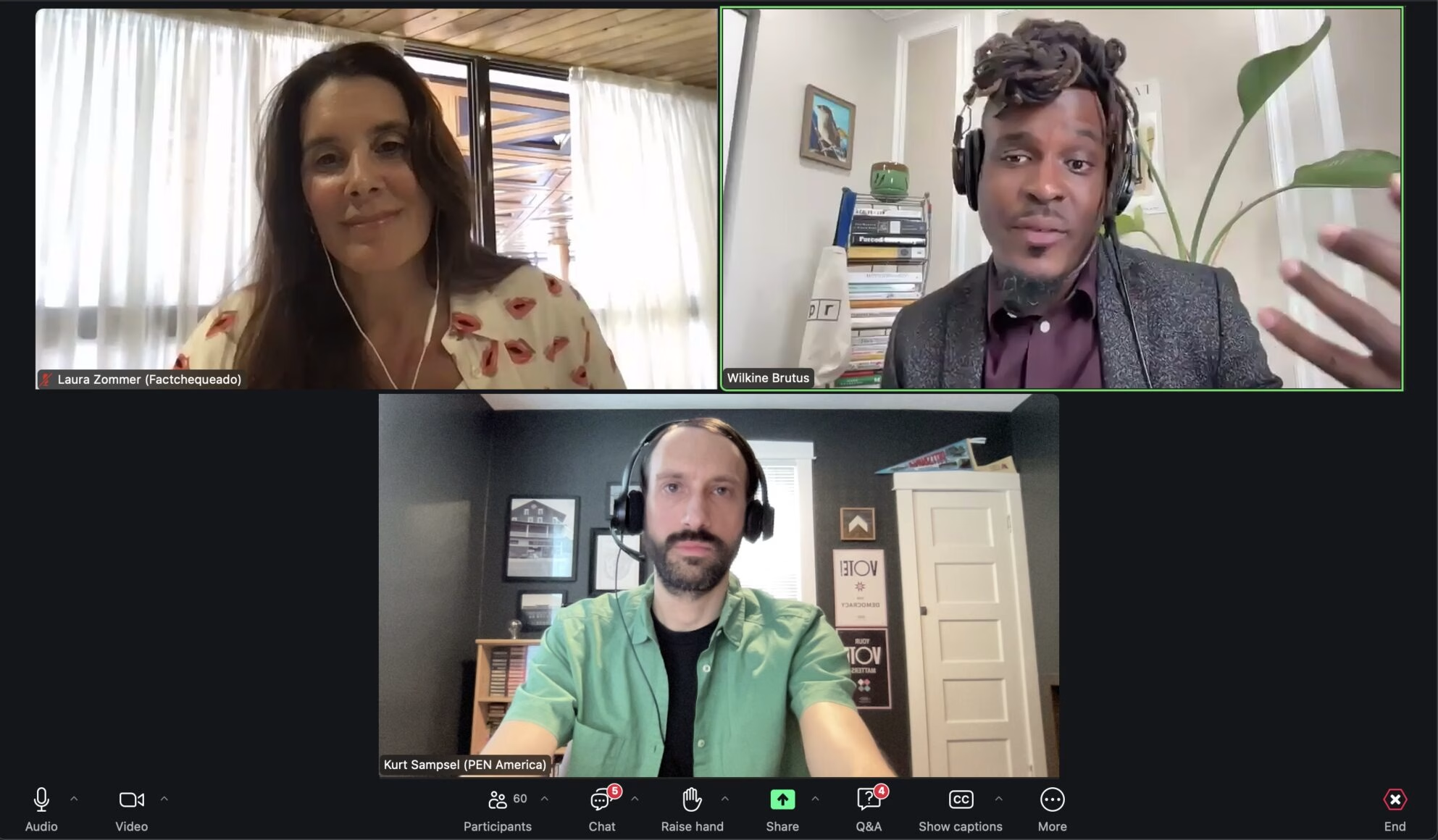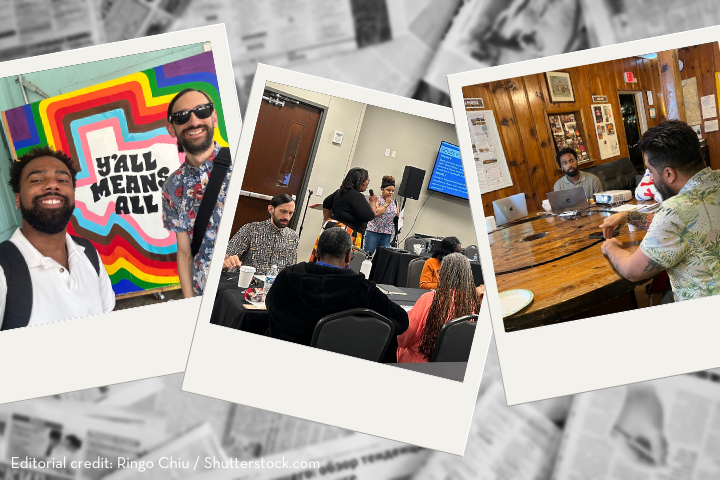
The forces behind Donald Trump’s election win are still being dissected, and it would be unwise and simplistic to point to any single factor. But disinformation, and beliefs around immigration, LGBTQ+ rights, women and diversity initiatives played a role in the campaign, according to one expert. We talked to Mother Jones’s Anna Merlan, who covers disinformation, extremism and technology, about the role disinformation played in the election; how, she said, “manosphere” figures peddled grievances to their audiences of disaffected young men; and how journalists can fight conspiracy theories that take hold on platforms like TikTok and Instagram.
This interview has been edited for length and clarity.
There’s been some debate about whether – and how much – disinformation played a role in the 2024 election. What’s your take on the idea that people who supported conservative candidates just didn’t have the right information, or fell into conspiracy theory rabbit holes?
The question of how much disinformation influenced this election is going to be argued over for years. I would shy away from the idea that conservative voters all went that way simply because they weren’t well-informed; it’s, of course, condescending to them, and an oversimplification. After all, many, many people told pollsters that they were primarily worried about the economy in this election. Also, both in the United States and across the world, this has been a year when incumbent politicians were swept out of office and replaced. There’s a widespread discontent, driven by the lingering effects of the worst years of the pandemic, that’s lent itself to a support for right-wing populism, which demonizes and lays blame at the feet of “globalism,” immigrants, and other politically useful boogeymen.
That said, we know that disinformation did affect some voters, in that it made them less sure who to trust or how to discern what is true and what isn’t. An October Pew Research Center poll found that a staggering half of American voters struggled to discern what was true and what wasn’t about election news. Republican voters were especially affected, with Pew reporting that they were “much more likely than Democrats and Democratic leaners to say they have seen inaccurate coverage and that they are having a hard time sorting out the truth.”
This is the real danger of disinformation. While some minority of voters might fall for racist lies like the claim that Haitians were eating dogs in Springfield, which Donald Trump himself promoted, a glut of disinformation can make people unsure, cynical about newsgathering as a whole, and more ready to tune out. This is incredibly useful for politicians, especially ones peddling lies and half-truths, but it’s really bad for an informed voting public.
Are you surprised to see election-fraud conspiracy theories circulating on the left after Kamala Harris’s loss? Why do you think liberals are falling into those narratives?
I’m not surprised. As the political scientists Joe Uscinski and Joseph Parent have written, indelicately but accurately, conspiracy theories are for “losers.” People facing loss of power are far, far more likely to engage in conspiratorial thinking about why it happened. (I’d recommend Uscinski and Parent’s book “American Conspiracy Theories” for a data-driven look at how this phenomenon has played out over the years.) This happened, for instance, after the 2004 defeat of John Kerry, and some of the 2004 doubters maintain their beliefs 20 years later.
What was disheartening, of course, is that some people on the left who promoted voter fraud ideas should quite simply know better. And I worry that the conspiratorial thinking will lead to a disaffection with the democratic process and a lack of civic engagement, which would be a tragedy. A lot of stuff is decided in local and state elections, and if people stop voting entirely because they wrongly believe Elon Musk rigged the elections, they’re ceding their own power to shape their communities.
I worry that the conspiratorial thinking will lead to a disaffection with the democratic process and a lack of civic engagement, which would be a tragedy.
There have been a lot of conversations about how Trump won young men. Obviously there’s no one reason for that swing, but how much of it do you think was because of the more extreme beliefs permeating in groups of men online, specifically this idea that the “manosphere” was emboldened?
I’m really interested in how the manosphere impacts young male voters, and I do think it’s another open question. I wrote about this in the Guardian, but one interesting thing is how often these men promote conspiracy theories about voter fraud and rigged elections. I wondered at the time if that would convince some of their audience that it was pointless to vote; instead, Donald Trump did exceedingly well among young men.
Again, though, a lot of these young men said they were worried about the economy, or felt their lives hadn’t improved under Biden. But we can’t ignore that manosphere figures also consistently peddle a narrative of intense grievance to their audience, telling them that they’re undervalued by society, that feminism or globalism or some other “-ism” is putting them specifically at a disadvantage. And, of course, we have people like Joe Rogan, the most popular podcaster in the country, who put out a large amount of content supporting both Trump and Robert F. Kennedy Jr.
Given how influential podcasts are for younger voters, it would be silly to assume that manosphere figures, with their incredible media reach, didn’t impact how their audience looks at some issues.
Immigration was a huge issue for people this election cycle, and false narratives around immigrants took hold in the mainstream. How do you think journalists can cover this topic in a way that speaks to those concerns people have about immigration without dehumanizing the immigrants who are the subjects of so many false, often offensive claims?
I think it’s always useful to show how demonizing “outside” groups – migrants, Catholics, Irish people, Jews – has been a political tool throughout U.S. history. When the economy is suffering, when people feel that they’re losing ground, there have always been nativist politicians around to convince them that the problem is immigrants, not the economic system they’re suffering under. Take the Know Nothing party in the 1850s, or the rise of the second Ku Klux Klan in the 1920s, or the surge of anti-immigrant sentiment in the 1990s, which drove a raft of “reforms,” making it harder for people to emigrate here and harder for them to get public assistance. This is a place where I think journalists can give their readers a broader sense of the history of how these claims have been used to sway the public.
I’m foolishly hopeful that the pendulum will swing back and people will want high-quality news again, and learn to distrust people who are just trying to sell them something.
What is your advice to fellow journalists who are covering the Trump administration, specifically those reporting on people like RFK Jr., who spread falsehoods about health and wellness?
I would advise other journalists to get really familiar with their back stories and previous claims, and ask persistently how they will impact public policy. For instance, if Mr. Kennedy still believes that HIV doesn’t cause AIDS, that’s a false and dangerous belief that could have major health implications for AIDS programs if he uses it to guide public policy. It’s crucial not to develop amnesia about who these people were before they took office.
Also, this is a time to build a deep bench of expert sources in the worlds of science and health: doctors, scientists, public health experts, science communicators and other people with serious credentials. Our readerships deserve to hear from the smartest people possible about complex scientific issues that people like Mr. Kennedy get disastrously wrong.
Social media influencers are often a gateway into conspiracy theories, particularly in the wellness space, and seem to be filling an information gap for people who don’t read the news as much. How do journalists win back those audiences who have decided the mainstream media can’t be trusted?
We have to be in the spaces – TikTok, Instagram – where those influencers are also plying their wares. Journalists have to be really good about working with our social media editors to get our stories onto these platforms. And ideally, the public sees how we show our work, how we fact-check our stories, and crucially, how we respond and take accountability when we get something wrong, which often isn’t the case for these influencers. I’m foolishly hopeful that the pendulum will swing back and people will want high-quality news again, and learn to distrust people who are just trying to sell them something.
There’s also the issue of cost and accessibility. Every time I talk to high school or college students, I ask them if they subscribe to any news sources at all, and the answer is usually no; people expect that news will come to their phones without them having to look for it, and they often can’t pay for a million different news outlets. I would love to see more creative models for funding news so we can have as much as possible that’s unpaywalled and easily accessible, and I’d love to see high school and college students learning how much digital news and other great stuff they can access with a library card. I’m a huge evangelist for Libby, Kanopy and all these other services you can get through your local library – and while you’re there, take a few newspapers or magazines for a spin and see if there’s something that catches your eye.
Anna Merlan is a senior reporter at Mother Jones covering conspiracy theories, disinformation and tech. She’s also the author of the 2019 book Republic of Lies: American Conspiracy Theorists and Their Surprising Rise to Power.

